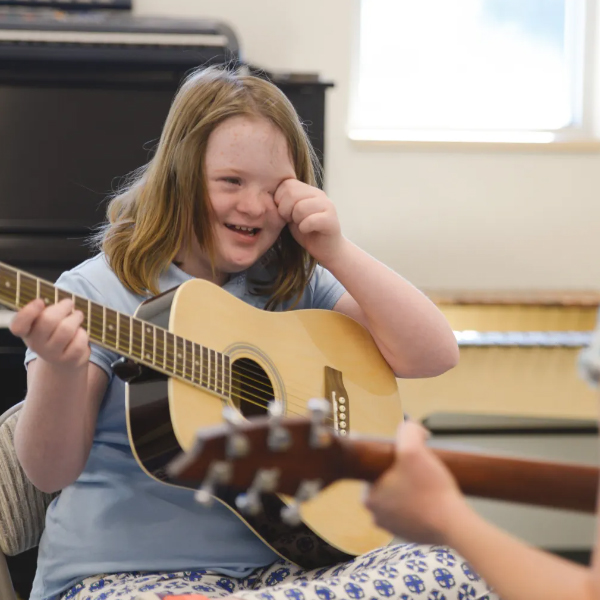MUSIC THERAPY FOR CHILDREN WITH DIFFICULTIES
Music therapy is an evidence-based use of music to accomplish individualized and functional non-musical goals within a therapeutic relationship by a Board-Certified Music Therapist (MT-BC).

BENEFITS OF MUSIC THERAPY:
PEOPLE OF INETEREST
Approaching
Every individual is unique and possesses a wide range of interests, strengths, challenges and abilities. The Healing Sounds staff has received special training about the effects of music on our brains and bodies. They use this knowledge to develop a strong partnership between therapist and child to build trust and build rapport – creating meaningful musical experiences.

Technique















